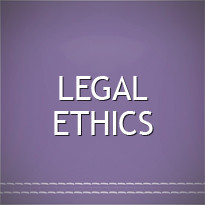Atty. Roberto Abrajano filed a petition for annulment of marriage for his client George Calbang. The certification and verification of the petition was notarized by Atty. Jorico Bayaua. The subsequent pleadings were signed by Atty. Bayaua.
The petition was granted but complainants filed disbarment cases against Atty. Abrajano and Atty. Bayaua on the ground that the petition and the subsequent pleadings contained false allegations like: false addresses of George and his former spouse to make it appear that the trial court had jurisdiction, non-declaration of acquired properties during the marriage, false service of pleadings, and false testimonies of witnesses.
In his defense, Atty. Bayaua claimed that he merely signed the pleadings but the person who prepared them was Atty. Abrajano.
(NOTE: It turns out Atty. Abrajano died even before the disbarment case against him was filed, hence, the disbarment case was recommended to be dismissed.)
ISSUE: Whether or not Atty. Bayaua is administratively liable.
HELD: Yes but disbarment is too severe. He is only reprimanded.
Atty. Bayaua’s defense is not acceptable. Atty. Bayaua himself admitted that he signed the succeeding pleadings in the annulment case, and hence, practically confirmed that he is George’s counsel on record and not Atty. Abrajano. His responsibility as such is thus governed by Section 3, Rule 7 of the 1997 Rules of Civil Procedure.
The signature of counsel constitutes a certificate by him that he has read the pleading; that to the best of his knowledge, information, and belief there is good ground to support it; and that it is not interposed for delay.
Thus, Atty. Bayaua’s act of signing the same is essentially a certification coming from him that he has read it, that he knew it to be meritorious, and it was not for the purpose of delaying the case. More importantly, it was his signature on these pleadings which supplied the same with legal effect and elevated their status from a mere scrap of paper to that of a court document.
This violation is an act of falsehood before the courts, which in itself is a ground for subjecting him to disciplinary action.


